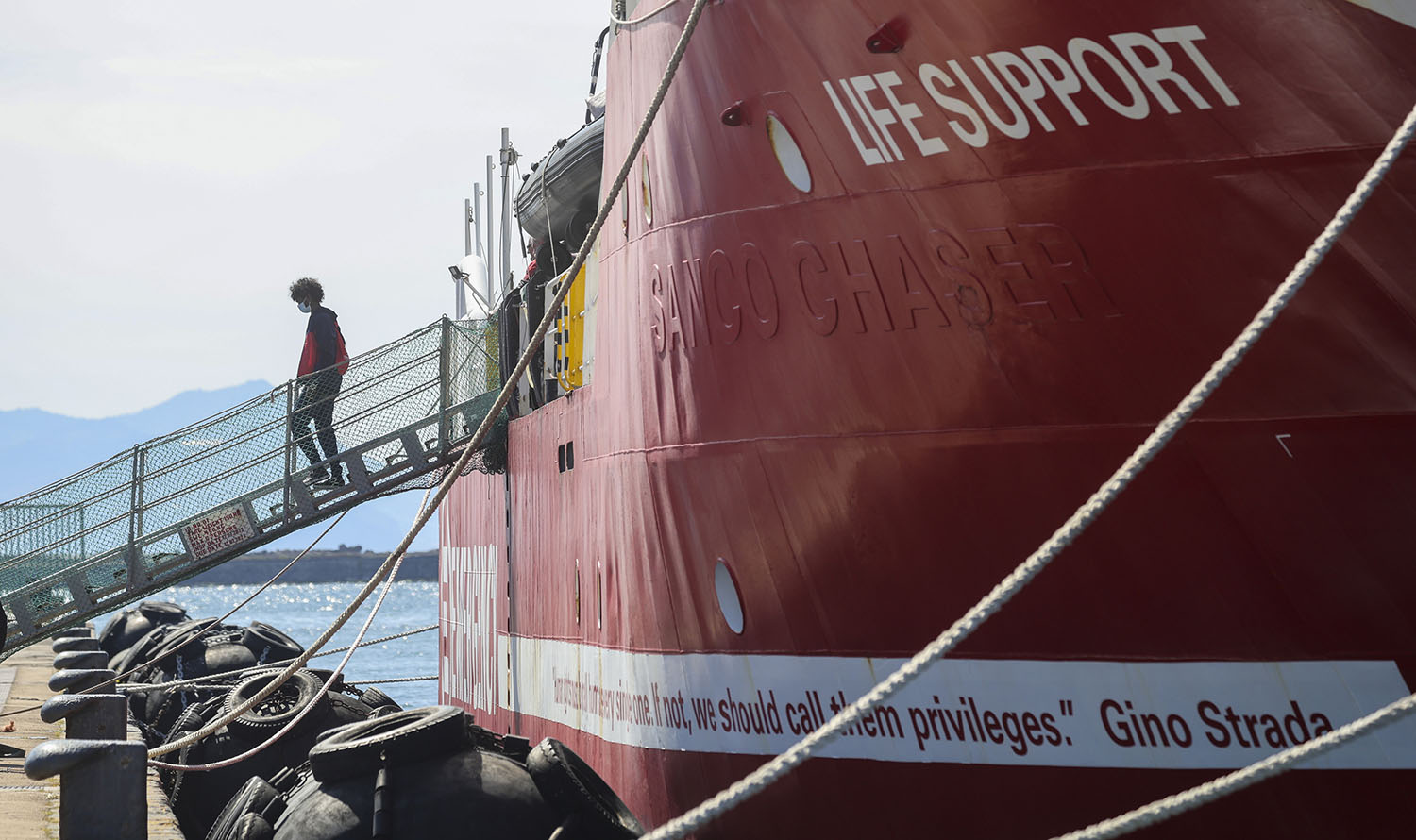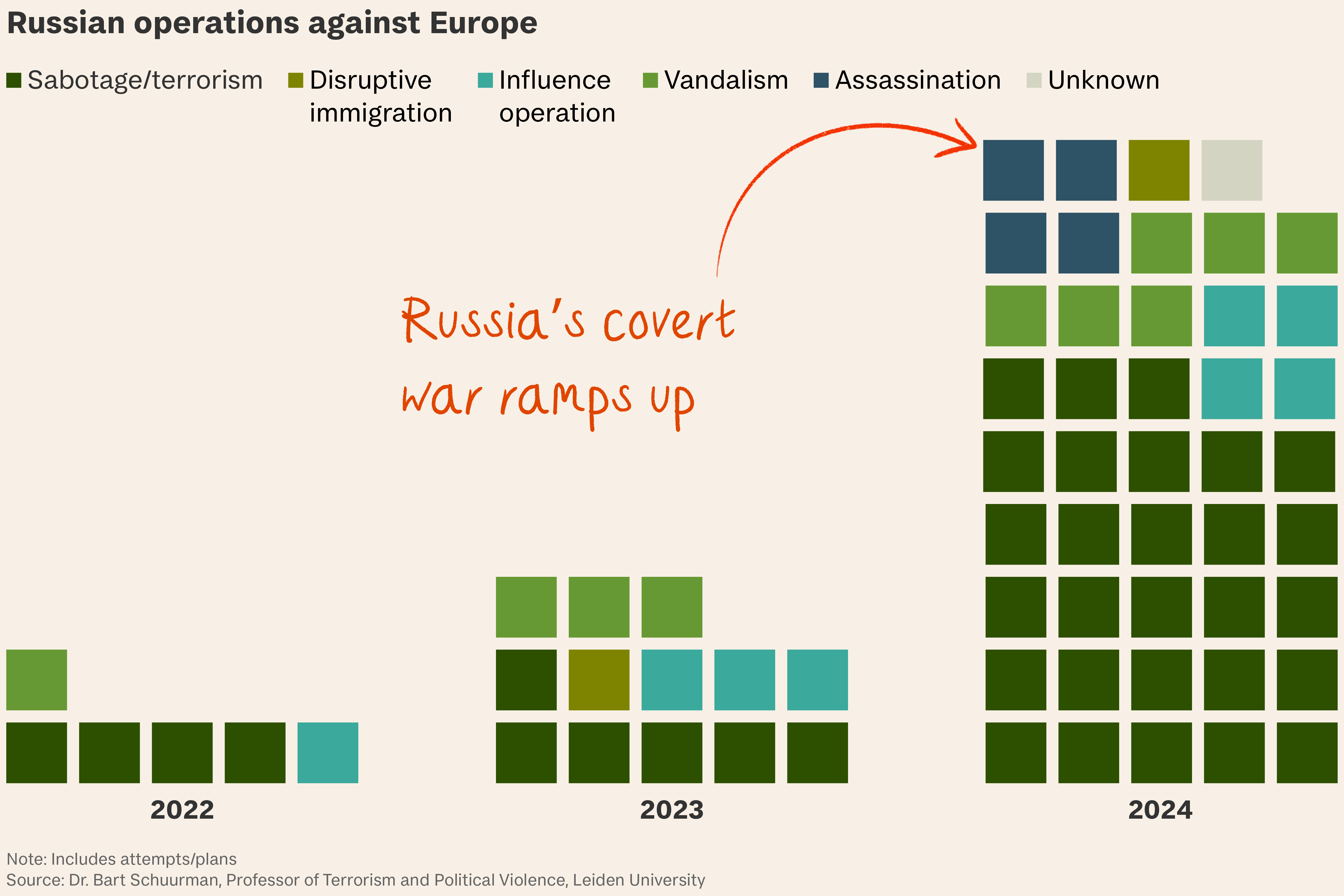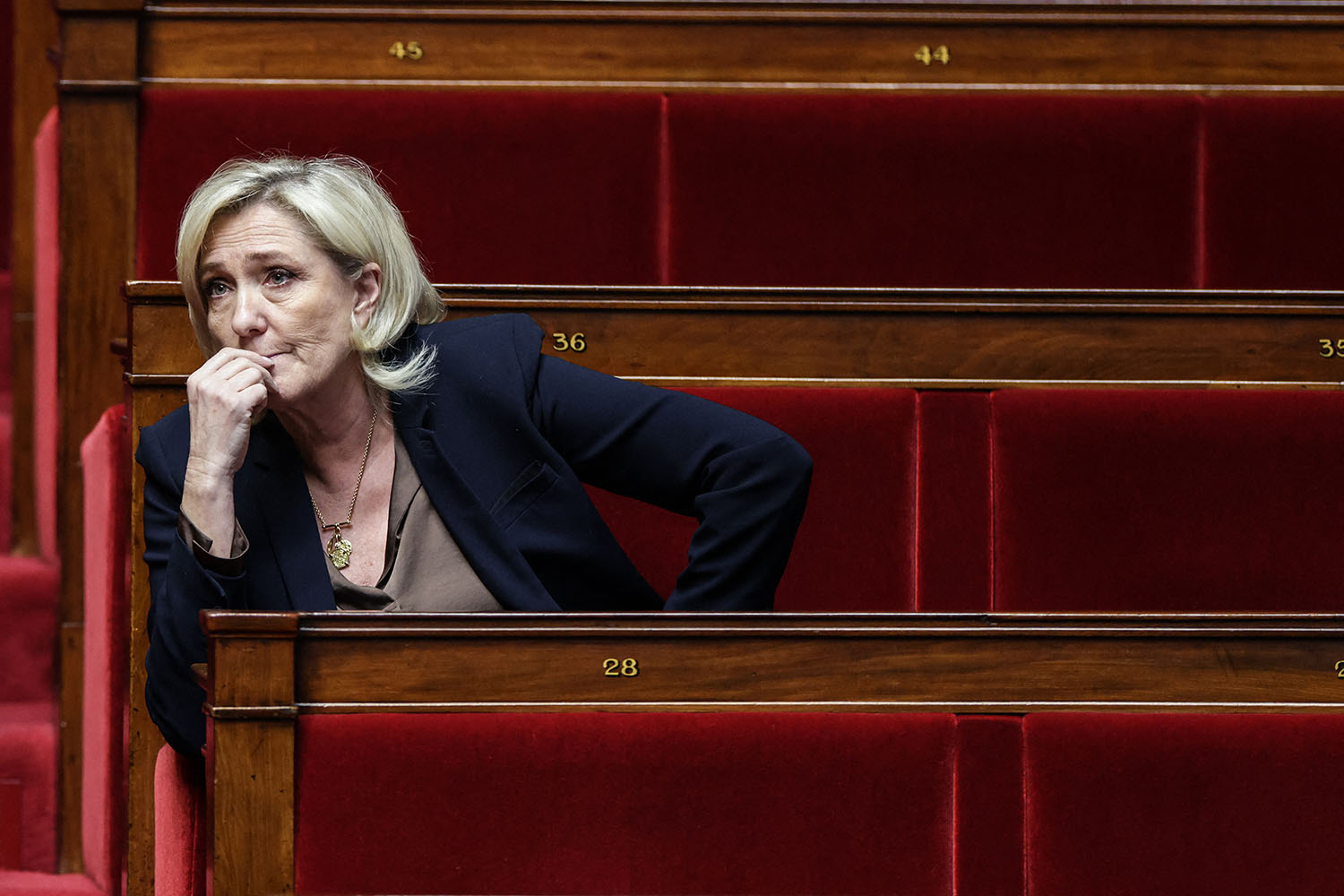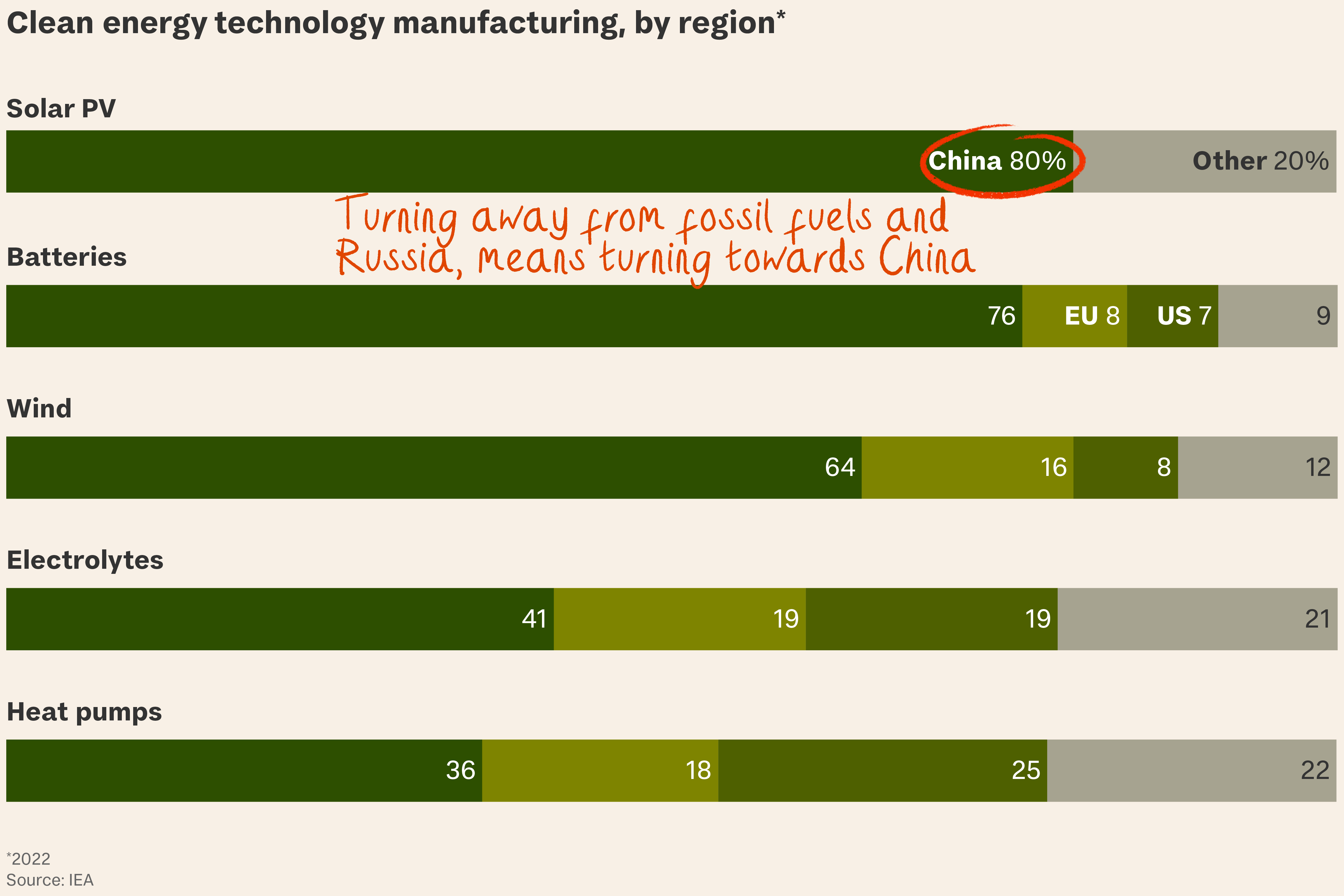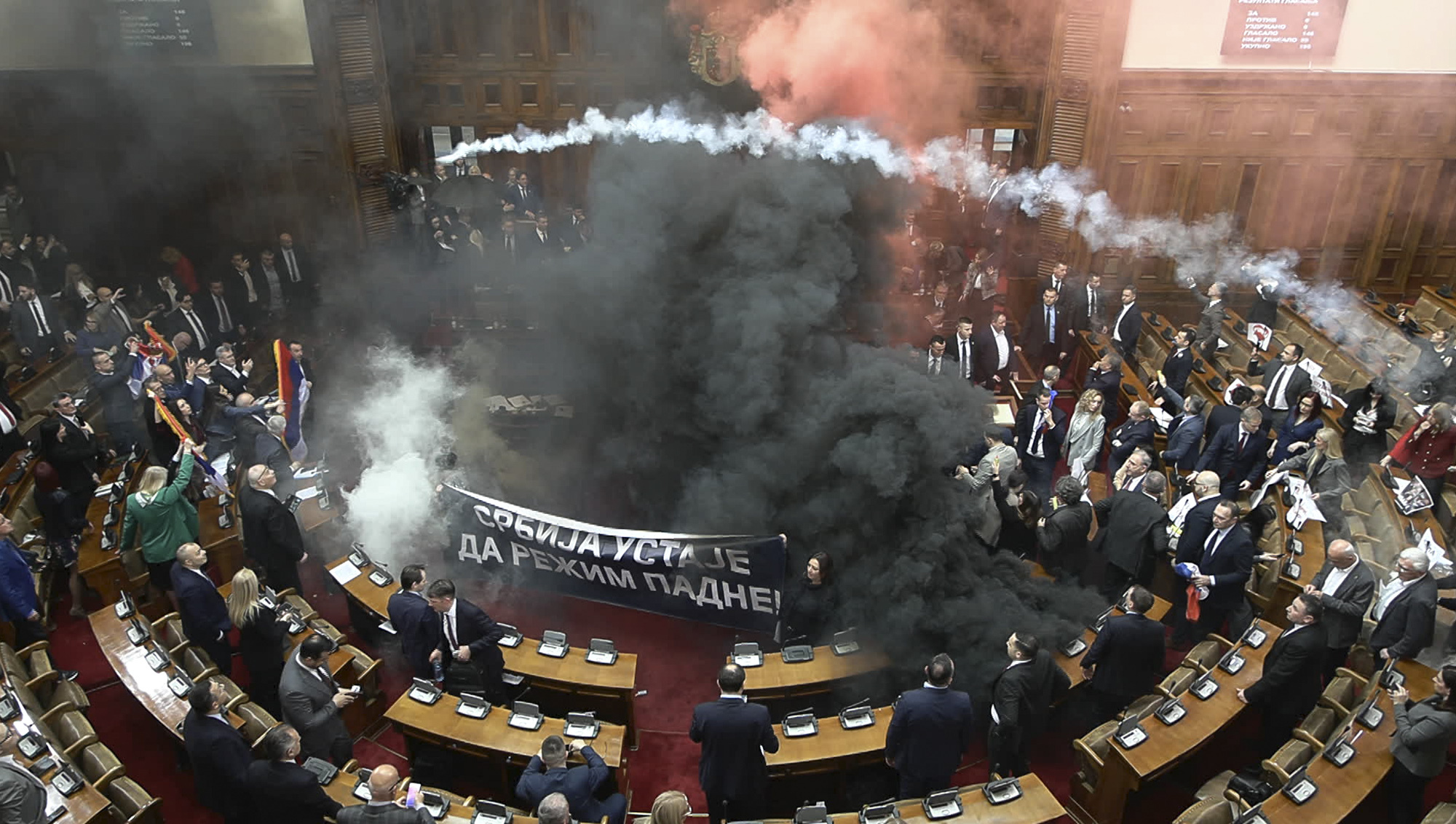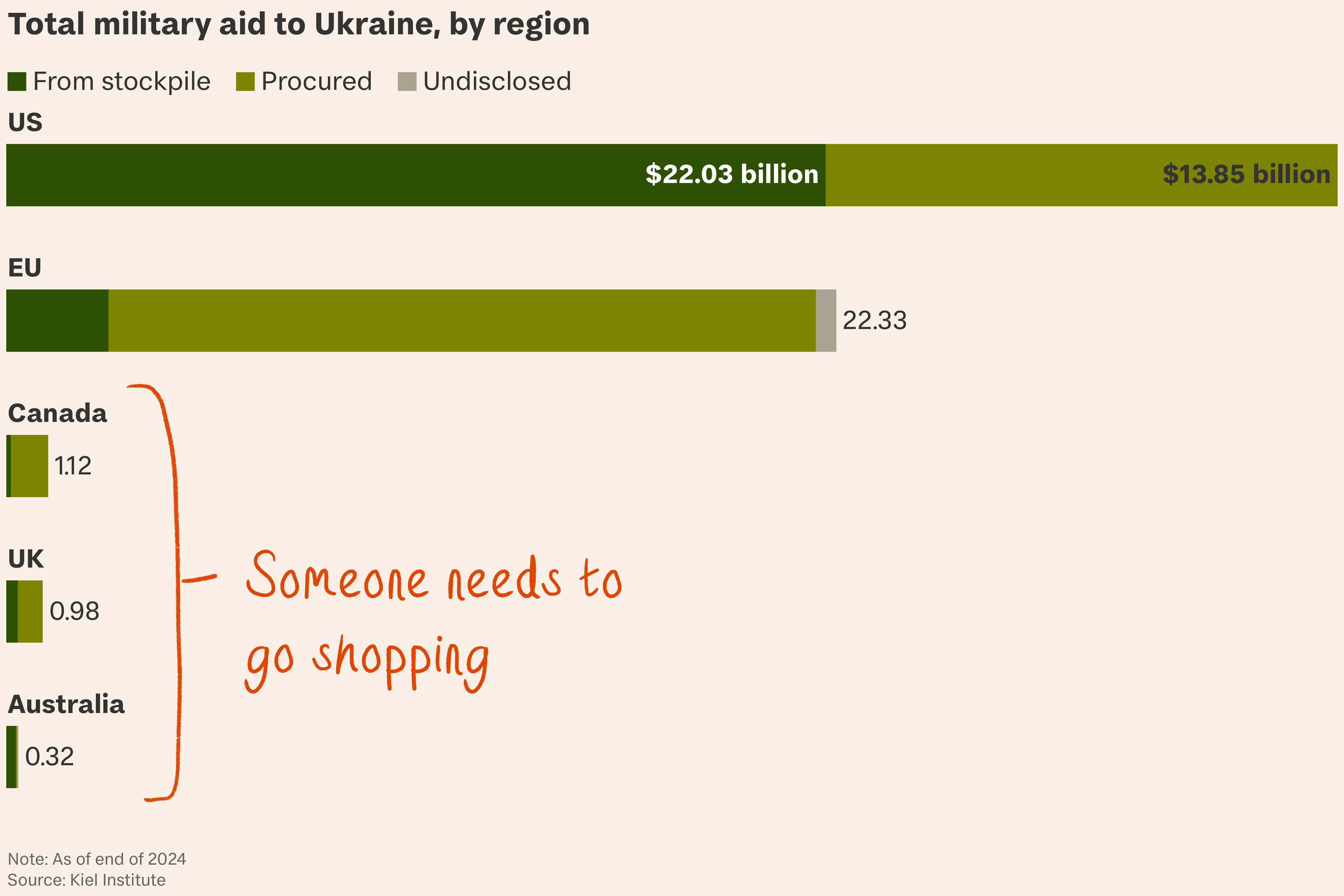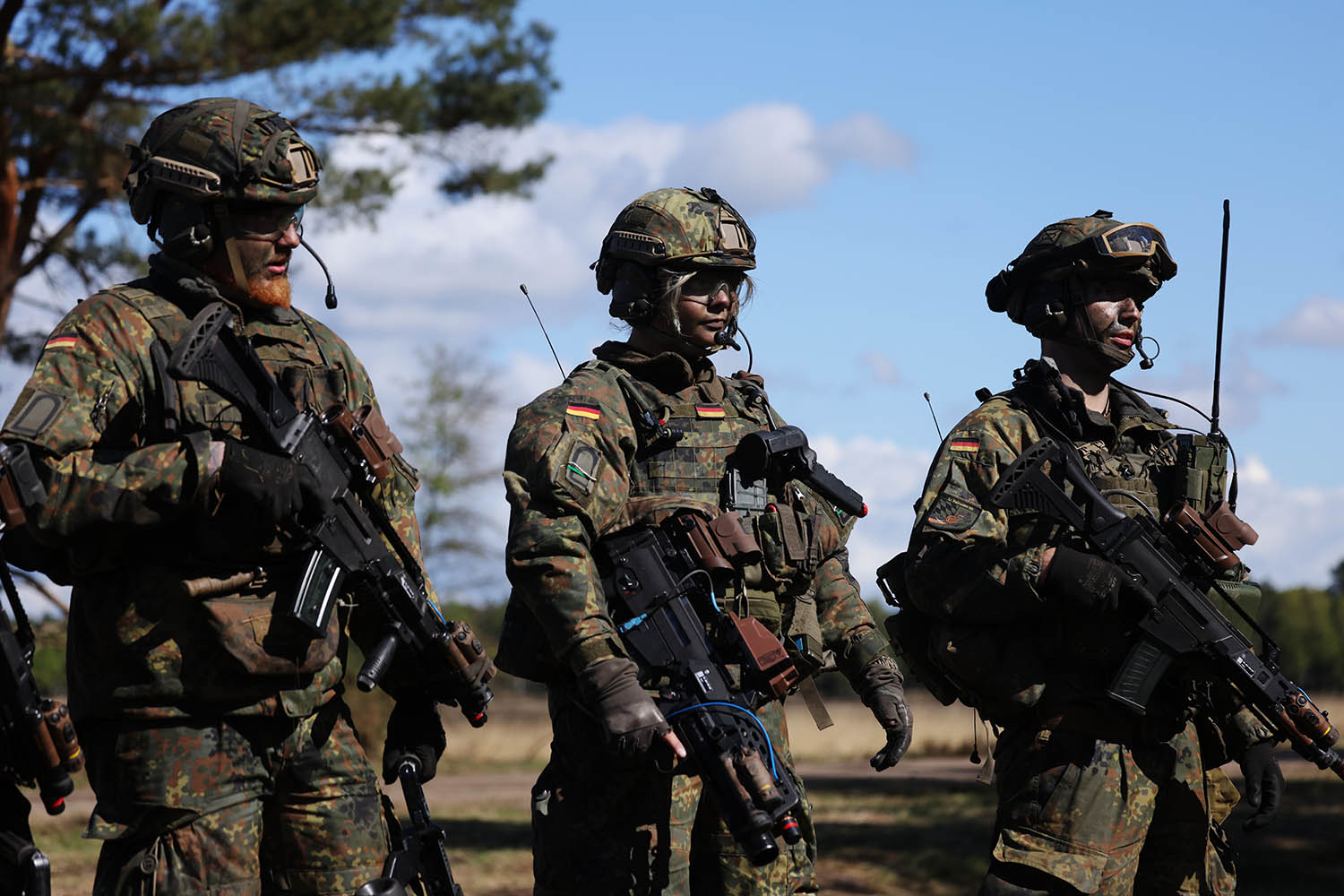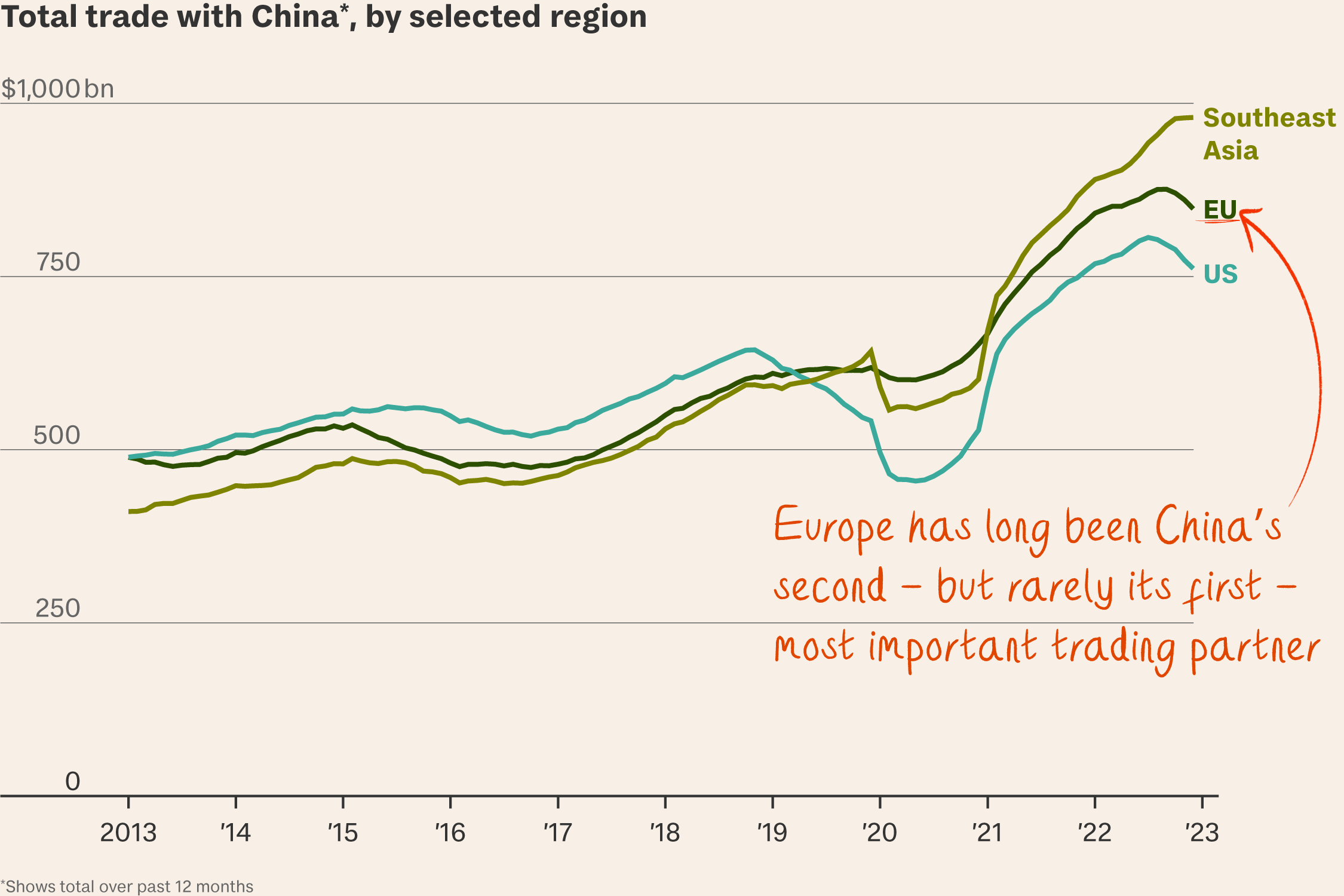
The Chinese leader’s decision to visit France, Serbia and Hungary might seem odd in Brussels – but makes complete sense in Beijing.
China’s Xi Jinping arrives in Serbia today after enjoying cognac, blueberry pie and a visit to the French Pyrenees with Emmanuel Macron.
So what? This is Xi’s first visit to Europe in five years. His three-stop itinerary of France, Serbia and Hungary might seem odd in Brussels – but makes complete sense in Beijing. It’s designed to
- admonish Nato;
- undermine the EU; and
- exploit transatlantic tensions.
Safe spaces. The three host countries “all represent different aspects of Xi’s hopes to get Europe to take a different attitude towards China” compared with that of the US, says Rana Mitter, ST Lee Chair in US-Asia Relations at Harvard Kennedy School. They are also probably the most pro-China nations in Europe, as Xi looks to repair damage done by Beijing’s support for Russia during its two-year assault on Ukraine.
- France. Macron’s idea for Europe to have “strategic autonomy” (he says Europe must not be a “vassal” to America) is the kind of alternative world order thinking that Beijing appreciates and suggests a less confrontational approach than Washington’s.
- Hungary is the most China-friendly member of the EU. It’s home to Huawei’s largest manufacturing base outside China, will host Chinese carmaker BYD’s first European factory and is part of China’s Belt and Road initiative, which includes a high-speed railway from Budapest to Belgrade. It’s close to Russia, another China ally.
- Serbia has benefited from around €20 billion in total Chinese investment, according to its minister of construction, transport and infrastructure. It represents non-EU Europe, says Mitter: Xi hopes that “infrastructure and other inducements will turn Belgrade’s eyes east rather than west”.
They might not take much turning. Belgrade was decorated with Chinese flags for Xi’s visit; its president, Aleksandar Vucic, told Chinese state media that “Taiwan is China – full stop”.
A bombing. Today also marks 25 years since Nato bombs hit the Chinese embassy in Belgrade during the Kosovo war, killing three Chinese journalists (the US said at the time that it was an accident due to faulty maps and apologised). Xi said yesterday that China will “never forget” the bombing, which created a bond between China and Serbia “forged with the blood of our compatriots”.
Whole new world. Xi last visited Europe in 2019: a world before Covid-19; before Russia’s invasion of Ukraine; before Chinese electric vehicles piled up at European ports.
Now the language in Europe has shifted to “de-risking” as Brussels launches investigations into Chinese subsidies for electric vehicles, wind turbines and solar panels. “Competition yes, dumping no,” Ursula von der Leyen, European Commission president, said last month. “That must be our motto.”
Italy became the first G7 country to join the Belt and Road Initiative in 2019 – it left last year.
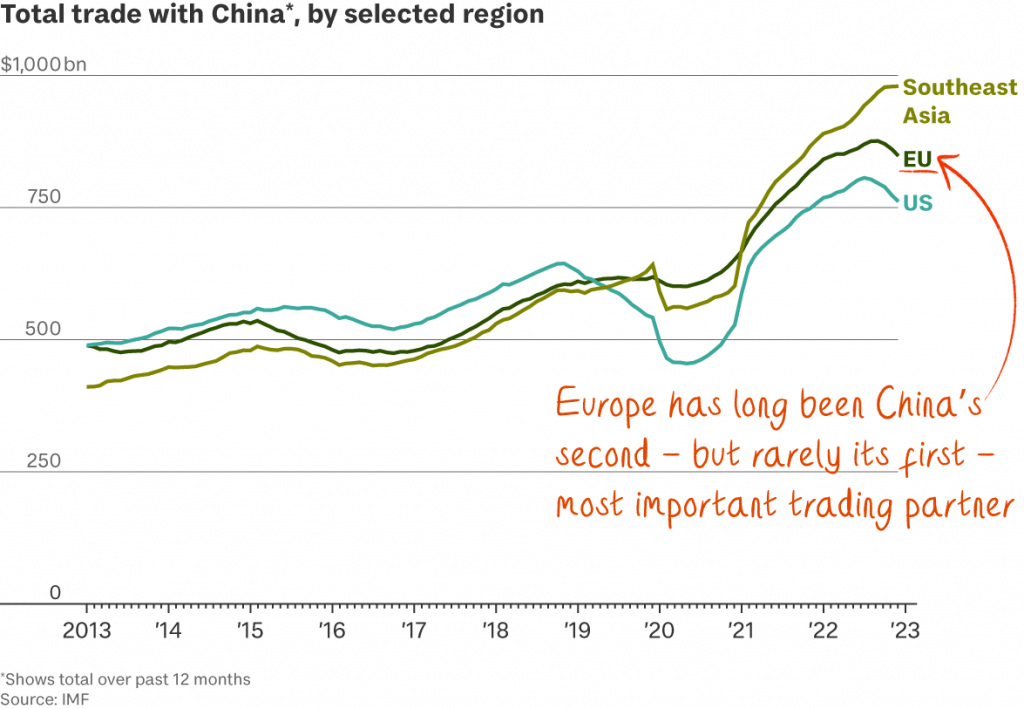
Licence to chill. Britain and Germany have recently charged six people suspected of spying for China, while Grant Shapps, the UK’s defence secretary, told parliament yesterday that state-backed hackers had obtained details of thousands of British military personnel. He named no names, but officials briefed that China was behind the hack (China rejected the claims).
Divide and conquer. “This trip by Xi Jinping is perhaps one of the most aggressive attempts on the part of the Chinese to actively foment disunity, both within the European Union and within Nato,” says Evan Medeiros, a former senior director for Asian affairs on America’s national security council. “Xi doesn’t want to deal with Brussels. He wants to undermine Brussels.”
Despite the trip to the mountains (where Macron spent his childhood holidays), Macron didn’t seem to secure much from Xi beyond a promise not to slap tariffs on French brandies and support for an “Olympics truce”. Xi’s visit “again proves that… France and Germany don’t really want to rock the boat with Beijing,” says Mujtaba Rahman, managing director for Europe at Eurasia Group.
What’s more. This is also a big week for Vladimir Putin, who was sworn in yesterday for a fifth term as Russia’s president. He’s planning a visit to China within a week.

